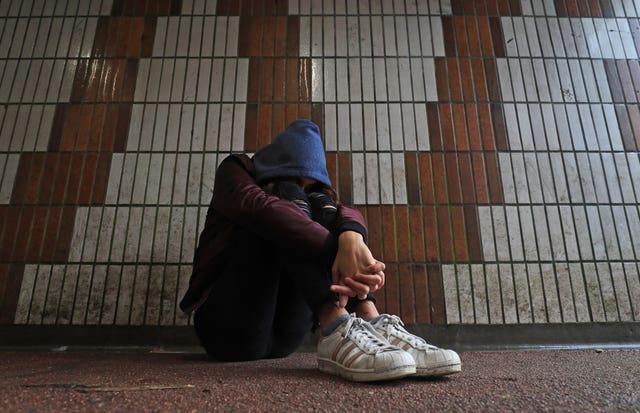One in five teenagers who sent ‘sexts’ pressured into it – survey
The research also suggests that many children sending nude or explicit images do so simply because they want to.

Around one in five teenagers who have sent “sexts” said they did so because they were coerced or blackmailed into it, according to a new survey.
Pressure to send nude or explicit images ramps up as children get older, with 15% of 13-year-olds polled saying they had experienced this behaviour, rising to 17% of those aged 14 and 23% of youngsters aged 15 and over.
The research highlighted issues of images being shared without their content (17%), bullying and harassment as a result of the photos or videos (14%), as well as pressure or threats to send more (14%).
However, it also revealed that many children sent sexts simply because they wanted to, with four in 10 (38%) saying they did it because they were in a relationship, while a third (31%) tried it for fun.
Psychologist Dr Linda Papadopoulos, an ambassador for Internet Matters, said: “Young people may think ‘sending nudes’ is harmless; however, it’s essential we look at the reasons why children send explicit images and what purpose they feel it serves.
“Fundamentally children are sending images because ‘they want to’, and addressing the reasons why they want to – as part of a bigger conversation at home and with professionals – will lower the chances of children facing potentially damaging consequences.”
Those who experience vulnerabilities such as mental health issues are twice as likely to be sharing nude images, the data from Internet Matters and the Cybersurvey by Youthworks suggests.
Speaking to 6,045 young people on the subject of sexting, relationships and meet-ups, the report indicates that boys are marginally more likely to share images (7%) than girls (6%).

Boys were most likely to consider it an expected part of being in a relationship (35%) while girls said “I was in a relationship and I wanted to” (41%).
Meanwhile, those who did not want to state their gender – 6% of the entire study – were the most likely (15%) to send explicit images.
Internet Matters chief executive Carolyn Bunting said: “For children who send images and face consequences, the effects can be devastating and can potentially lead to long-term damage to their emotional wellbeing.
“And as society’s most vulnerable are disproportionately likely to send images, it’s crucial young people experiencing vulnerabilities are being fully supported by their parents who understand the pressures to send images that some of these children face.”





